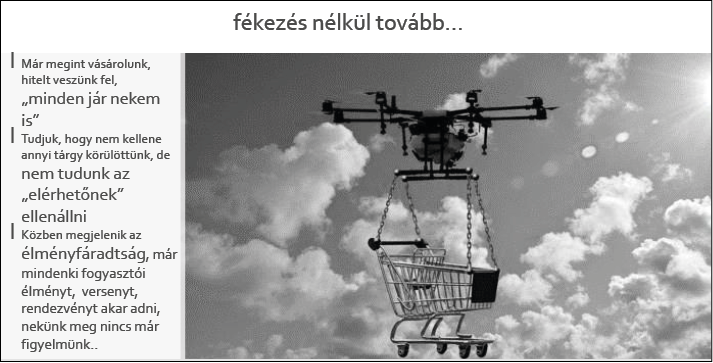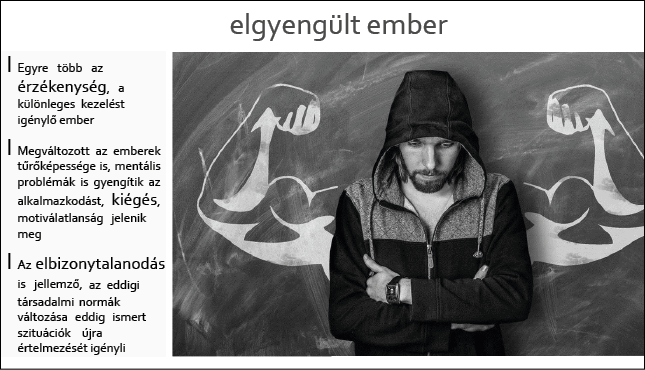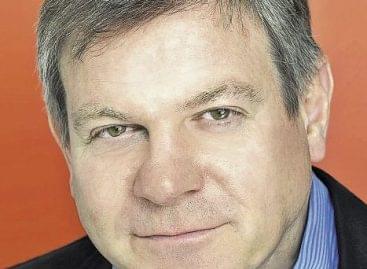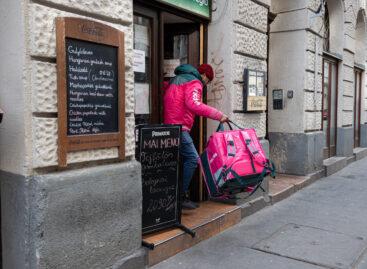Magazine: Dr Mária Törőcsik’s presentation at the Business Days conference: Why are some consumers reluctant to buy?
Hungarian consumers have experienced three recessions since the political transformation in 1990: the period right after the transformation, the economic recession in 2008 and the recent pandemic. As a result of the latter a new type of consumer has developed, what Mária Törőcsik calls ‘scenario consumer’. These shoppers make different consumption scenarios and often ask themselves the question: Do I really need to buy this? Non-consumption had become a trend across various consumer groups and Ms Törőcsik started studying certain aspects of this.
Non-consumption, consumption…

Dr. Mária Törőcsik
university professor
Several new consumer types have appeared on the scene recently. Those ‘working from home’ tend to buy many consumer electronics and services that facilitate staying at home. Then there are the ‘smart consumers with smart devices’, who behave in a new way and use new products. Some consumers are ‘stuck in the pandemic’, who don’t really mix with people and shop online. ‘Gamers’ are another new consumer type, while ‘health consumers’ already existed before – it is just there are more of them now. Last but not least there are those ‘consumers who have decided to quit consumption’. Ms Törőcsik thinks that each consumer has its own attitude and preferences, and they tend to notice and adopt those megatrends from the many which are close to them.
New values, new priorities
Values are changing as well and Mária Törőcsik reckons that the pace of life and modern or traditional values define various consumer groups. Those who live a modern and fast life like to form part of scenes and live in the digital world. People with a modern and slow life focus on responsibility. Fast and traditional consumers want safety and control, and their home country and national feelings matter to them a lot. For the traditional and slow group locality is important. To this group belong different phenomena, such as the birth of the ‘weakened person’: why are there so many allergic people? How can people in their 20s suffer from burnout?
Being climate positive is an important consumer expectation from brands nowadays. The climate change makes people think, but they do little to act. Still, they like those brands and companies which do something for the environment.

Reality vs. the virtual world
As the pandemic forced many people to stay at home, the line between work and free time has become blurred. Many people can’t manage their time well, while others are bored with the new reality. The latter find the virtual space more exciting, e.g. e-sports, buying virtual brands, etc. Another new phenomenon is non-consuming consumers: this doesn’t just mean that the consumer makes do without something, but also consuming something else – in another word: responsible consumption.

Dr Mária Törőcsik’s conclusion was that scenario consumption generates lots of uncertainties and this influences the lives of retailers and manufacturers alike. At the same time there are also small consumer groups formed, which have their very specific needs and own types of behaviour. //
The above article has also been published in Issue 2021/12-01 of Trade magazin.
Related news
In the light of statistical data
László Selmeczi, co-chairman and managing director of Hungarian Confectioners’ Craft…
Read more >Pockets rattling with change
Tünde Turcsán, managing director of CPS GfK-YouGov gave a presentation…
Read more >We can be cautiously optimistic
Dr Ákos Kozák, co-founder of the Equilibrium Institute gave a…
Read more >Related news
After a subdued year, the holiday season is strong
74% of online shoppers, around 3.1 million people, are preparing…
Read more >Lidl has published its 3rd sustainability report
Lidl Hungary’s sustainability report for the 2022/2023 business years has…
Read more >Battle of the regions: these are the most popular dishes according to Hungarians
Five times the national average of Mexican food is consumed…
Read more >






